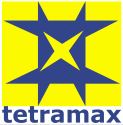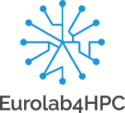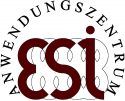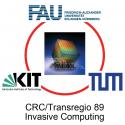4.6 Smart Communication Solutions for Automotive Systems
Date: Tuesday 26 March 2019
Time: 17:00 - 18:30
Location / Room: Room 6
Chair:
Dirk Ziegenbein, Robert Bosch GmbH, DE
Co-Chair:
Selma Saidi, Hamburg University of Technology, DE
In this session, three approaches to smart communication in automotive systems design are presented. The first paper optimizes end-to-end latencies for time-sensitive networks with frame preemption. The second paper introduces a consensus scheme for vehicle platoon maneuvers. The third paper presents a decentralized approach to non-neighbor charge balancing in battery packs.
| Time | Label | Presentation Title Authors |
|---|---|---|
| 17:00 | 4.6.1 | DESIGN OPTIMIZATION OF FRAME PREEMPTION IN REAL-TIME SWITCHED ETHERNET Speaker: Taeju Park, University of Michigan, Ann Arbor, US Authors: Taeju Park1, Soheil Samii2 and Kang Shin3 1University of Michigan, Ann Arbor, US; 2General Motors Research & Development, US; 3University of Michigan, US Abstract Switched Ethernet technology is increasingly common in current and future real-time and embedded systems. The IEEE 802.1 working group has recently developed standards and technologies, commonly referred to as Time-Sensitive Networking (TSN), to enhance switched Ethernet with real-time and dependability properties. We address, for the first time, the synthesis problem for the TSN frame preemption standards IEEE 802.3br-2016 and 802.1Qbu-2016, which introduce two new configuration parameters: flow to queue and queue to Express/Preemptable MAC interface assignment. We present an optimization framework to determine these configuration parameters, considering reliability as optimization goals. Our experiments show that our proposed framework outperforms commonly used priority-assignment algorithms and an intuitive approach. Download Paper (PDF; Only available from the DATE venue WiFi) |
| 17:30 | 4.6.2 | CUBA: CHAINED UNANIMOUS BYZANTINE AGREEMENT FOR DECENTRALIZED PLATOON MANAGEMENT Speaker: Emanuel Regnath, Technical University of Munich, DE Authors: Emanuel Regnath and Sebastian Steinhorst, Technical University of Munich, DE Abstract Autonomous driving, vehicle platoons and smart traffic management will dramatically improve our transportation systems. In contrast to centralized approaches, which do not scale efficiently with the actual traffic load, a decentralized traffic management based on distributed consensus could provide a robust, fair and well-scaling solution for infrastructures of variable density. In this paper, we propose a distributed platoon management scheme, where platoon operations such as join or merge are decided by consensus over a Vehicular ad hoc network (VANET). Since conventional consensus protocols are not suitable for Cyber-Physical Systems (CPS) such as platoons, we introduce CUBA, a new validated and verifiable consensus protocol especially tailored to platoons, which considers their special communication topology. We demonstrate that CUBA only introduces a small communication overhead compared to the centralized, Leader-based approach and significantly outperforms related distributed approaches. Download Paper (PDF; Only available from the DATE venue WiFi) |
| 18:00 | 4.6.3 | DECENTRALIZED NON-NEIGHBOR ACTIVE CHARGE BALANCING IN LARGE BATTERY PACKS Speaker: Alexander Lamprecht, TUMCREATE, SG Authors: Alexander Lamprecht1, Martin Baumann2, Tobias Massier1 and Sebastian Steinhorst2 1TUMCREATE, SG; 2Technical University of Munich, DE Abstract Recently, active charge balancing of the cells in battery packs has been gaining importance over state-of-the-art passive balancing solutions. The main advantage of active balancing lies in the ability to transfer charge between cells rather than dissipating it thermally. This enhances the overall efficiency and energy output of battery packs. In this paper, we develop a new class of strategies for decentralized operation of charge transfers between non-neighboring cells using appropriate balancing hardware architectures. While the benefits of the active balancing approach with a centralized controller have been discussed in literature extensively, the implementation of adequate strategies for scheduling charge transfers in decentralized battery management systems, which promise to be more robust and modular, have not been studied sufficiently so far. Furthermore, existing decentralized strategies only deal with charge transfers between neighboring cells. In order to compare our novel distributed non-neighbor balancing strategies to existing neighbor-only balancing strategies, we implement them in an open-source simulation framework for decentralized battery management systems. Our results show that we are able to improve the two most important metrics of balancing time and losses by up to 63% and 51%, respectively. Download Paper (PDF; Only available from the DATE venue WiFi) |
| 18:30 | IP2-7, 257 | DESIGN OPTIMIZATION FOR HARDWARE-BASED MESSAGE FILTERS IN BROADCAST BUSES Speaker: Lea Schönberger, TU Dortmund University, DE Authors: Lea Schönberger, Georg von der Brüggen, Horst Schirmeier and Jian-Jia Chen, Technical University of Dortmund, DE Abstract In the field of automotive engineering, broadcast buses, e.g., Controller Area Network (CAN), are frequently used to connect multiple electronic control units (ECUs). Each message transmitted on such buses can be received by each single participant, but not all messages are relevant for every ECU. For this purpose, all incoming messages must be filtered in terms of relevance by either hardware or software techniques. We address the issue of designing hardware filter configurations for clients connected to a broadcast bus in order to reduce the cost, i.e., the computation overhead, provoked by undesired but accepted messages. More precisely, we propose an SMT formulation that can be applied to i) retrieve a (minimal) perfect filter configuration, i.e., no undesired messages are received,ii) optimize the filter quality under given hardware restrictions, or iii) minimize the hardware cost for a given type of filter component and a maximum cost threshold. Download Paper (PDF; Only available from the DATE venue WiFi) |
| 18:31 | IP2-8, 593 | VEHICLE SEQUENCE REORDERING WITH COOPERATIVE ADAPTIVE CRUISE CONTROL Speaker: Yun-Yun Tsai, National Tsing Hua University, TW Authors: Ta-Wei Huang1, Yun-Yun Tsai1, Chung-Wei Lin2 and Tsung-Yi Ho1 1National Tsing Hua University, TW; 2National Taiwan University, TW Abstract With Cooperative Adaptive Cruise Control (CACC) systems, vehicles are allowed to communicate and cooperate with each other to form platoons and improve the traffic throughput, traffic performance, and energy efficiency. In this paper, we take into account the braking factors of different vehicles so that there is a desired platoon sequence which minimizes the platoon length. We formulate the vehicle sequence reordering problem and propose an algorithm to reorder vehicles to their desired platoon sequence. Download Paper (PDF; Only available from the DATE venue WiFi) |
| 18:30 | End of session Exhibition Reception in Exhibition Area The Exhibition Reception will take place on Tuesday in the exhibition area, where free drinks for all conference delegates and exhibition visitors will be offered. All exhibitors are welcome to also provide drinks and snacks for the attendees. |















